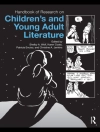The Autobiography of an Ex-Colored Man and Other Writings, by
James Weldon Johnson , is part of the
Barnes & Noble Classics series, which offers quality editions at affordable prices to the student and the general reader, including new scholarship, thoughtful design, and pages of carefully crafted extras. Here are some of the remarkable features of
Barnes & Noble Classics:
- New introductions commissioned from todays top writers and scholars
- Biographies of the authors
- Chronologies of contemporary historical, biographical, and cultural events
- Footnotes and endnotes
- Selective discussions of imitations, parodies, poems, books, plays, paintings, operas, statuary, and films inspired by the work
- Comments by other famous authors
- Study questions to challenge the readers viewpoints and expectations
- Bibliographies for further reading
- Indices & Glossaries, when appropriate
Barnes & Noble Classics pulls together a constellation of influences—biographical, historical, and literary—to enrich each readers understanding of these enduring works.
In his long career
James Weldon Johnson established himself as a poet, composer, lawyer, diplomat, educator, and journalist. Yet he wrote only one novel:
The Autobiography of an Ex-Colored Man. Published anonymously in 1912, it received scant notice until its reissue in 1927 at the height of the Harlem Renaissance. A landmark in African-American writing,
The Autobiography of an Ex-Colored Man was the first black novel written in the first person, and a trailblazer for writers exploring racial ambiguity. It served as an eloquent model for later writers ranging from Zora Neale Hurston to Richard Wright and Ralph Ellison.
A coming-of-age story about a man whose light skin enables him to “pass” for white,
The Autobiography of an Ex-Colored Man describes a remarkable journey through the strata of black and white society at the turn of the twentieth century. From a cigar factory in Jacksonville to an elite gambling club in New York, from hobnobbing with European aristocrats to jamming with ragtime musicians, the unnamed narrator struggles to forge an identity in a culture that recognizes nothing but color. At the end, he discovers that the decision to pass brings its practitioners little more than a ruinous self-denial.
This edition also includes a selection of Johnson’s poetry and newspaper writings.
Noelle Morrissette is Lecturer of African-American Studies and English Literature at Yale University, where she received her Ph.D. in 2002.












